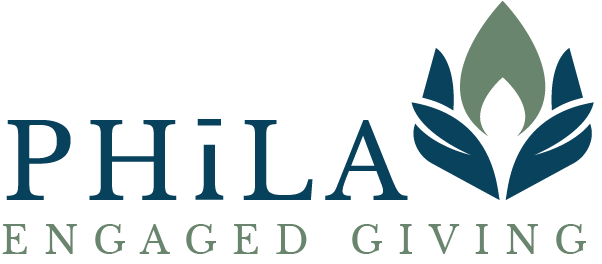Image by RDNE Stock Project via Pexels
“The arc of the moral universe is long, but it bends toward justice.” — Dr. Martin Luther King Jr.
By Mark Greer
The new administration is the latest threat in the rising tide of challenges to our collective pursuit of justice and equality. Hard-won programs that support racial equity, environmental stewardship, and inclusive hiring practices are under attack. Immigrants and asylum seekers face dehumanizing policies. Efforts to pull back from global climate commitments threaten our planet’s future, and social programs designed to offer marginalized communities a hand-up—not a handout—are being demonized. Philanthropy increased its commitments to equity in 2020 during the calls for justice post the murders of George Floyd, Breonna Taylor, and countless others, but has since pulled back from those commitments, folding to political and social pressure.
In our work advising philanthropists, families, and foundations, we have witnessed firsthand what happens when people of means choose to align their wealth and influence with the pursuit of justice. As the Great Wealth Transfer unfolds—an estimated $84 trillion in assets changing hands over the coming decades, of which $12 trillion is expected to flow into charities—we are at a critical crossroads. Will these resources exacerbate inequality, or will they actively dismantle it?
Many of our clients have embraced the latter path, transforming their giving to be more justice-centered. They no longer view philanthropy as a simple act of benevolence but as a commitment to shared power—a way to elevate community leadership, invest in systemic change, and create tangible pathways for equity and opportunity. By refusing to be swayed by political or social pressure to scale back their efforts, they are seizing this historic moment to make philanthropy a force for justice, solidarity, and hope.
Why Justice-Centered Philanthropy Matters
It Fosters Deep Community Engagement
When high-net-wealth families work alongside grassroots organizations, local leaders, and everyday community members, philanthropy ceases to be a one-way transfer of funds. It becomes a partnership—one that amplifies community expertise, meets urgent needs, and fosters sustainable development. This collaboration leads to healthier, stronger communities where every person feels a stake in collective prosperity.It Promotes Shared Power and Collective Action
Justice-centered donors don’t simply write checks; they share resources, decision-making power, and trust. This approach dismantles the traditional “top-down” philanthropic model, allowing communities to help shape funding strategies and solutions. By diversifying who sits at the table, high net-wealth changemakers can reach better, more inclusive outcomes that benefit everyone.It Benefits All of Society
Equality and justice aren’t zero-sum propositions. When local economies thrive, education gaps close, and healthcare becomes accessible, the ripple effects bolster the entire social fabric. Businesses find stronger workforces, neighborhoods become safer, and civic participation flourishes. Justice-centered philanthropy is an investment in shared well-being, ensuring that the next generation inherits not only wealth but also a more just world.
A Collective Opportunity
With vast resources at their disposal, donors are positioned to be a catalyst for transformation. Justice-centered philanthropy isn't just about “doing good”—it’s about cultivating shared power and creating conditions where everyone can thrive. As more philanthropic dollars transfer into younger hands and new decision-makers, we have a singular opportunity to address long-standing inequities head-on.
Let’s commit, together, to bridge gaps—not widen them. Let’s choose solidarity over complacency. In doing so, we reinforce what history has shown time and time again: when you invest in justice, you invest in a future where everyone benefits.
Now is the moment to transform wealth into justice. May your leadership and generosity stand as a beacon that lights the way for others, ensuring that this pivotal wealth transfer champions not only financial growth but the growth of our shared humanity.
Practical Steps to Center Justice in Your Philanthropy
Listen and Learn
Engage with grassroots groups, community organizers, and local thought leaders.
Organize listening sessions or site visits to deepen your understanding of the issues you care about.
Align Resources with Values
Conduct a portfolio or grantmaking audit: Do your investments and grants genuinely reflect your equity commitment?
Integrate environmental, social, and governance standards or impact investing strategies where appropriate, ensuring your wealth builds justice rather than undercutting it.
Elevate Community Leadership
Invite community representatives to serve on advisory boards or grantmaking committees.
Develop multi-year funding strategies that give organizations the stability to innovate, scale, and collaborate over time.
Practice Solidarity, Not Charity
Move beyond one-time gifts. Provide unrestricted or flexible funding that enables frontline organizations to adapt and grow.
Amplify underrepresented voices in public forums, media campaigns, and policy conversations, using your influence to highlight critical issues.
Stay the Course Amid Pressure
Political tides shift. Resist calls to dilute your commitments or retreat from DEI, ESG, or equity-focused initiatives.
Remember Dr. King’s words: “The arc of the moral universe is long, but it bends toward justice.” By holding firm in your dedication, you help bend that arc more swiftly toward equity for all.




